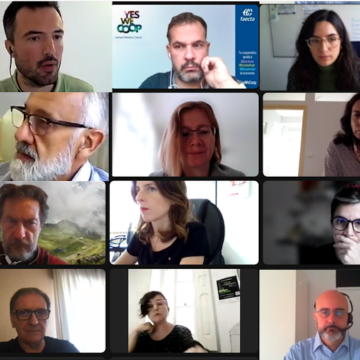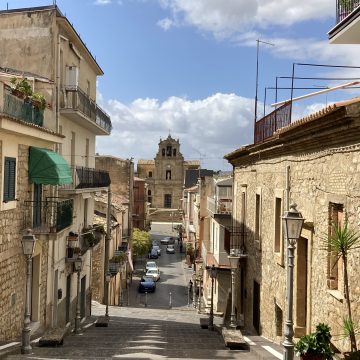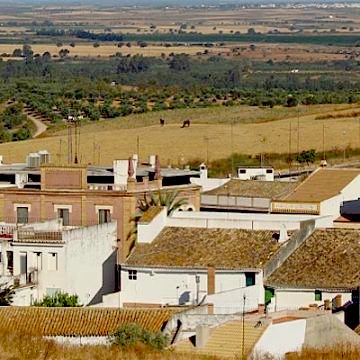GRAPE’s recommendations to policy makers
 Drawing on 18 months of joint work on the local actions plans developed by GRAPE project partners and the various discussions during project meetings, REVES – the European Network of Cities and Regions for the Social Economy (partner in the GRAPE project) – has drafted a Policy Paper addressed to policy-makers at local, national and European level.
Drawing on 18 months of joint work on the local actions plans developed by GRAPE project partners and the various discussions during project meetings, REVES – the European Network of Cities and Regions for the Social Economy (partner in the GRAPE project) – has drafted a Policy Paper addressed to policy-makers at local, national and European level.
«In the process of planning and implementing a Local Action Plan, we are faced within a number of challenges that can often appear unsurmountable for small communities. These challenges concern, for example, a lack of competences and (technical) knowledge or managing the complex bureaucratic procedures for accessing funding. A consequence is the difficulty of structuring coherent and long-term Plans» Erdmuthe Klaer, deputy secretary general of REVES, pointed out at the Final Conference. «It is very important that policy makers start developing policies by involving the whole community, including the area associations and by taking into account different points of view. And in a process that involves local communities, social economy is a fundamental driver».
The main areas around which the project partners identified intervention priorities concern financial, renewable energy, agriculture and tourism fields.
How to support local communities
On the financial field, they all highlighted the lack of funding for their needs and the fact that, in a number of Member States, for programmes such as those related to Cohesion Policy Funds, evaluation criteria represent a real entry barrier for social economy enterprises. This happens, for example, where great emphasis is placed on the existence of a certain level of profits in the previous year. GRAPE partners therefore encourage national authorities to consider a possible revision of evaluation criteria and the European Commission to closely monitor this.
With respect to the renewable energy field, the GRAPE consortium stresses the need to establish more favorable policies and regulations to support the start-up of Energy Communities. This may include, for example, simplifying authorization and licensing procedures, as well as removing legal and administrative barriers that make it difficult for citizens to participate in community energy projects. Local governments can play a key role for example in the identification or provision of land or buildings for the development of local energy communities.
Regarding agriculture, GRAPE project partners highlight the need, but also the real potential, to make agricultural and food production again sustainable, regenerative and resilient in environmental, social but also economic terms. This could include the promotion of a new food culture based on traditions, promoting local products, seeds and species. In addition, sustainable synergies between agriculture, a climate-friendly food culture and sustainable tourism could be created. From this point of view, the policy paper calls on decision-makers to move toward a supportive local regulatory and financial framework for a sustainable agri-business sector with multi-level objectives: food production, restoration of biodiversity, maintenance of soil fertility and small ecosystems, protection from fires and floods, strengthening of social cohesion, and regeneration of abandoned land.
Finally, the promotion of new forms of tourism which would respect the environment, sustainable land use and local cultures, whilst at the same time contributing to the creation of new job opportunities is highly recommended. Social economy actors can play a key role, accompanying the development of a sustainable and responsible ecotourism that benefits both the local community and the environment.
This document reflects the views only of the Author and the GRAPE Consortium. The Commission cannot be held responsible for any use wich may be made of the information contained therein.








